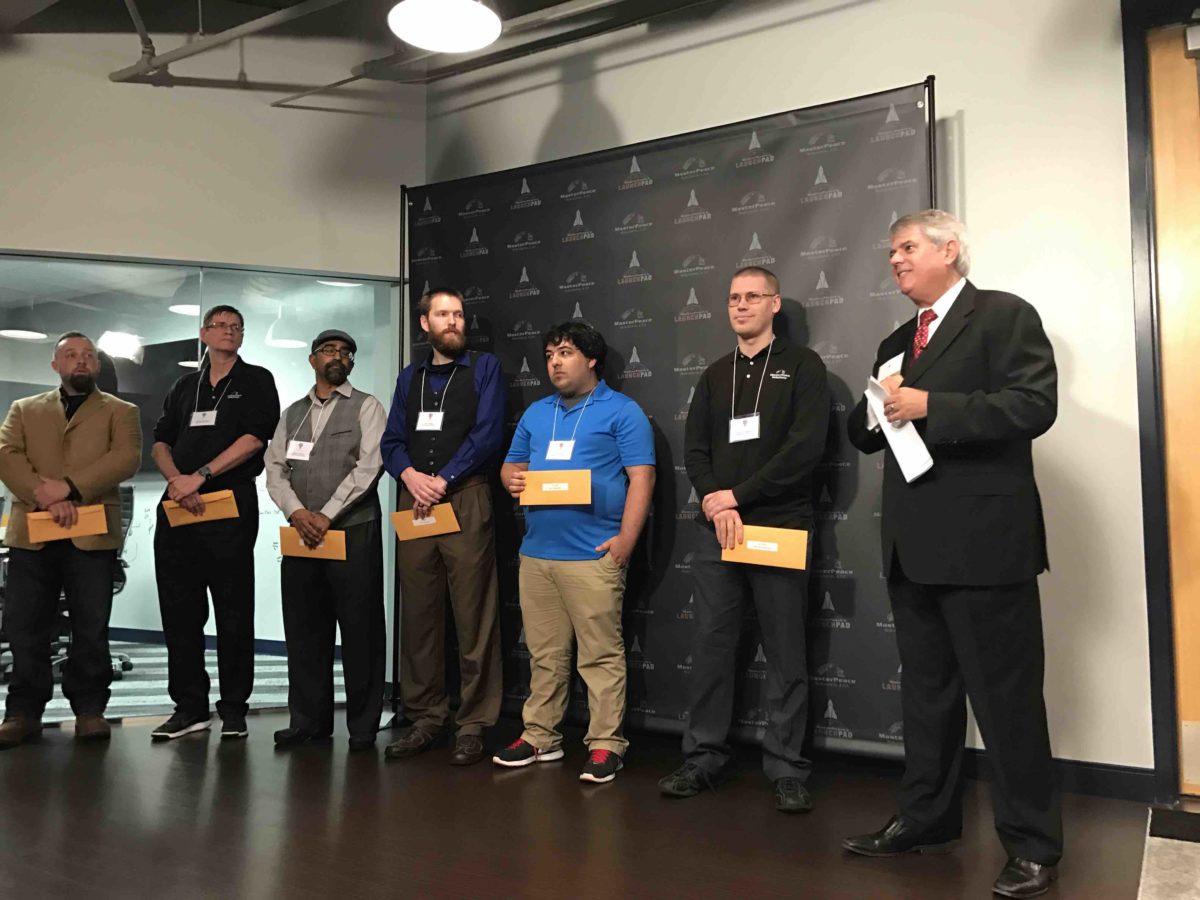A cybersecurity startup that began inside Columbia-based MasterPeace Solutions has $300,000 in new funding to move from a product development phase toward gaining new customers.
Zuul, which specializes in Internet of Things security, was among the first batch of companies backed by Masterpeace as part of an in-house acclerator program that’s designed to help employees of the firm form their own startups. It’s now the first startup from the MasterPeace Launchpad to raise capital.
On evenings, nights and weekends, founder Edward Stanford and a team of six engineers worked with MasterPeace leaders including CEO Drew Cohen on developing a product to secure internet-connected devices, with an initial focus on transportation.
After going through a process that Cohen said included three pivots, the company arrived at an app that can be used to configure security certificates so that devices are protected.
“We wanted to work with the gear you had, not make you change it,” Stanford said.
With the app on a smartphone, the configuration could be done by a technician who is servicing an appliance or device. As more devices become internet-connected, the person who already services an appliance such as an air conditioner will also need tools for security, Cohen said.
Within MasterPeace, Stanford has spending more time on Zuul in recent weeks. Now TEDCO and undisclosed local angel investors signed on to provide funding with continued support from MasterPeace, which will allow the company to more fully spin up and develop more customers.
“The funding allows them to leave MasterPeace and become Zuul,” Cohen said.
Even though it means losing team members, Cohen endorses the tradeoff. In fact, he said, the LaunchPad was “built to do that.” MasterPeace has equity in Zuul, and Cohen sees a higher potential for return in startups than the company’s longtime services business with the intelligence community. For workers around Fort Meade, it also represents the chance to make a jump into startups.
“The fact that we can demonstrate a real path from government services contracting work to being a commercial startup…and de-risk that startup process, that is one of the reasons why engineers come to MasterPeace,” Cohen said.
Stanford was among them. He said he left a comfortable job at another contractor because he was interested in getting involved in a new company. So far, he said the work has been rewarding.
Now the task is to continue building a business. Zuul has one customer in the public transportation space the name of which was not disclosed. The team will look to expand in that area, as well as building automation. Cohen said MasterPeace will continue to help along the way.
“The access to contacts and expertise on the business side is something that is invaluable,” Stanford said.
Zuul, which specializes in Internet of Things security, was among the first batch of companies backed by Masterpeace as part of an in-house acclerator program that’s designed to help employees of the firm form their own startups. It’s now the first startup from the MasterPeace Launchpad to raise capital.
On evenings, nights and weekends, founder Edward Stanford and a team of six engineers worked with MasterPeace leaders including CEO Drew Cohen on developing a product to secure internet-connected devices, with an initial focus on transportation.
After going through a process that Cohen said included three pivots, the company arrived at an app that can be used to configure security certificates so that devices are protected.
“We wanted to work with the gear you had, not make you change it,” Stanford said.
With the app on a smartphone, the configuration could be done by a technician who is servicing an appliance or device. As more devices become internet-connected, the person who already services an appliance such as an air conditioner will also need tools for security, Cohen said.
Within MasterPeace, Stanford has spending more time on Zuul in recent weeks. Now TEDCO and undisclosed local angel investors signed on to provide funding with continued support from MasterPeace, which will allow the company to more fully spin up and develop more customers.
“The funding allows them to leave MasterPeace and become Zuul,” Cohen said.
Even though it means losing team members, Cohen endorses the tradeoff. In fact, he said, the LaunchPad was “built to do that.” MasterPeace has equity in Zuul, and Cohen sees a higher potential for return in startups than the company’s longtime services business with the intelligence community. For workers around Fort Meade, it also represents the chance to make a jump into startups.
“The fact that we can demonstrate a real path from government services contracting work to being a commercial startup…and de-risk that startup process, that is one of the reasons why engineers come to MasterPeace,” Cohen said.
Stanford was among them. He said he left a comfortable job at another contractor because he was interested in getting involved in a new company. So far, he said the work has been rewarding.
Now the task is to continue building a business. Zuul has one customer in the public transportation space the name of which was not disclosed. The team will look to expand in that area, as well as building automation. Cohen said MasterPeace will continue to help along the way.
“The access to contacts and expertise on the business side is something that is invaluable,” Stanford said.
Before you go...
Please consider supporting Technical.ly to keep our independent journalism strong. Unlike most business-focused media outlets, we don’t have a paywall. Instead, we count on your personal and organizational support.
Join our growing Slack community
Join 5,000 tech professionals and entrepreneurs in our community Slack today!

The person charged in the UnitedHealthcare CEO shooting had a ton of tech connections

From rejection to innovation: How I built a tool to beat AI hiring algorithms at their own game

Where are the country’s most vibrant tech and startup communities?


